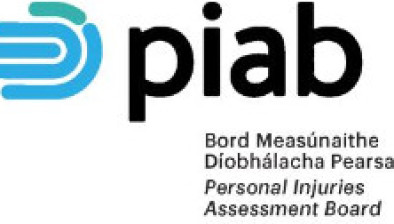High Court: €228,160 awarded to man who fell from unguarded stairwell

The High Court has awarded €228,160 to a site supervisor who fell from an unguarded stairwell while using an angle grinder, causing him to suffer severe personal injuries.

About this case:
- Citation:[2024] IEHC 339
- Judgment:
- Court:High Court
- Judge:Ms Justice Leonie Reynolds
Delivering judgment for the High Court in May, Ms Justice Leonie Reynolds remarked that the plaintiff’s employer “seemed to naively believe that he could brush the matter under the carpet whilst maintaining his insurance cover and avoiding any health and safety authority prosecution. His dereliction of his duties as an employer is simply baffling, and reprehensible.”
Background
On 20 July 2015, the plaintiff was working as a supervisor when he received a request from his employer, the first defendant, to bring an angle grinder to another site at Liffey Valley where the first defendant was providing services to the second defendant.
The angle grinder was required to remove lifting eyes from a stairwell in order to enable the completion of works on the site. The plaintiff commenced this task on the upper landing of the stairwell which was 2.9 metres from the ground. The guardrail had been removed by the second defendant’s employees to facilitate the first defendant’s works, and had not been replaced.
The plaintiff was not wearing his safety harness as he had not anticipated carrying out any works on the site, and subsequently fell from the unguarded stairwell, suffering skull and facial fractures, a traumatic brain injury, amnesia, loss of smell and taste, and various orthopaedic injuries.
The plaintiff alleged inter alia that his employer visited him after the accident at his home and requested that he write a statement to the effect that he would not make any claim as against the first defendant.
The High Court
Ms Justice Reynolds commented that there was “very little planning surrounding the works being undertaken at the time of the accident” and found that when the plaintiff arrived on site, he was directed by his employer to remove the lifting eyes “on the spur of the moment” without any prior notice or reference to safety concerns.
The court rejected the first defendant’s contention that the plaintiff was acting “on a frolic”, as his employer in his evidence had described seeing the plaintiff on the stairwell just prior to the accident and had not directed him to stop.
Ms Justice Reynolds noted in respect of the plaintiff’s employer that “matters were compounded further by his behaviour in the aftermath of the accident in exerting pressure over the plaintiff to make a statement indicating that he would not be pursuing a claim for his injuries” and that she was “satisfied having regard to his actions in protecting his own interests with his insurance company that he never pursued any notification to the HSA or indeed if he did, it suited his purposes not to follow up with them by way of investigation of the accident”.
Considering the plaintiff’s experience in the construction industry and his safety training, the judge determined that as “there must be some culpability on the part of the plaintiff, in my view a finding of 20% is appropriate in all the circumstances”.
The court refused to award the significant sums sought for loss of opportunity and/or vocational impact on the basis that the “undisputed evidence is that the plaintiff is motivated to work and has demonstrated a strong application to work throughout his life, to his credit”, but was satisfied that he would require a knee replacement in the near future to enable him to continue working and awarded him special damages of €25,000 for same, with a further €200 in special damages for his miscellaneous travel expenses.
Proceeding to assess the plaintiff’s injuries by reference to the Book of Quantum, Ms Justice Reynolds considered the approach in Meehan v Shaw Cove Limited & Ors. [2022] IECA 208 to cases involving multiple injuries, noting that “I have approached them from the point of view of a significant head injury incorporating skull fractures, sensory deficits, right sided double vision, hypo Globus, nasal injuries and scarring and thereafter considered the orthopaedic injuries, to include the knee and wrist injuries”.
The court decided that although the plaintiff had achieved a remarkable recovery, he had permanent cognitive issues, sensory impairment, permanent scarring and disfigurement and double vision which would remain with him for his lifetime. Ms Justice Reynolds was satisfied that the plaintiff’s head injury was to be considered at the top of the scale and his knee injury in the upper moderate to severe range. The court also considered an uplift for the plaintiff’s other orthopaedic injuries “which were clearly more minor in nature”.
The court assessed general damages at €200,000 and awarded additional damages of €60,000 for pain and suffering into the future in respect of the plaintiff’s knee injuries which “will never full resolve (even post-surgery)”, his loss of taste and smell, his scarring, altered sensation and nasal disfigured
Conclusion
Taking the appropriate deduction of 20 per cent into account in respect of the plaintiff’s contributory negligence, the High Court awarded €228,160 to the plaintiff.
Keevey v Rigging and Machine Movers Limited & Anor [2024] IEHC 339







